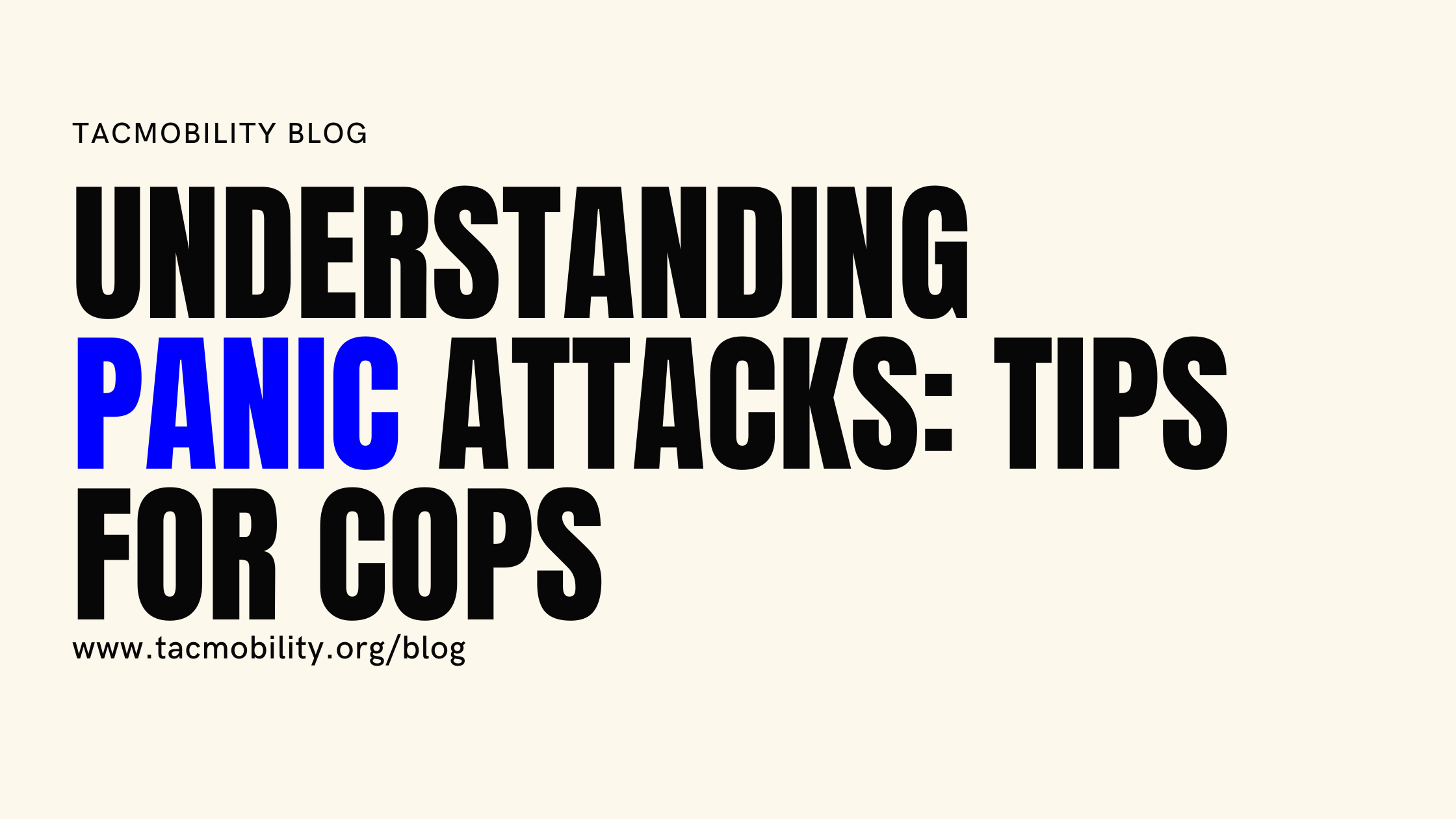Understanding Panic Attacks: Tips for Managing Stress in Law Enforcement
Imagine sitting in your patrol car and without reason, your heart starts palpitating and your legs feel a little numb. Then, your eyes begin darting from left to right as your mind starts thinking that something terrible is going to happen to you. Mind you, there is no clear and present danger but everything in your body feels like there is. You start thinking, “Is this a heart attack? Why can’t I feel my body? What is going on? Am I going to die?”
In the high-stress world of law enforcement, mental health challenges like panic attacks are more prevalent than many realize. According to studies, about 11% of people experience panic attacks but when they hit, they are INTENSE; thus, highlighting the urgent need for effective coping strategies.
What Triggers Panic Attacks?
Panic attacks can be triggered by various factors, including:
Work Stress: The demanding nature of law enforcement, exposure to trauma, irregular work hours contribute significantly to stress levels and lack of sleep.
Traumatic Events: Officers often witness or experience traumatic incidents, leading to heightened anxiety and panic.
Personal Factors: Genetics, past experiences, and underlying mental health conditions can increase the risk of panic attacks.
Tips to Lower Panic Attack Symptoms:
Remind yourself that you are in control of your body and you are having a brief moment of panic and it’s ok.
Practice Box Breathing: When you feel a panic attack coming on, focus on deep, slow breaths. Inhale deeply for a count of four, hold for four, and exhale slowly for four, hold for four. Repeat this cycle to calm your nervous system.
Mindfulness Meditation: It’s weird – we get it but the benefits are next level. Mindfulness is the awareness of what is actually happening and meditation is an intentional choice to think about or feel something such as safety or presence. Simple way? Focus on your breath moving in and out of your nose. As your thoughts wonder to the unknown, keep redirecting yourself to the feeling and sound of your breath.
Seek Support: Panic attacks are a signal from your body that you need support. Don't hesitate to let someone know that things are feeling uncomfortable. Peer Support, counseling and therapy tailored for law enforcement can provide valuable strategies and coping mechanisms.
Healthy Lifestyle: Eat some fruits or veggies for vitamins and energy, snack on almonds or other nuts for omegas, prioritize regular exercise, and ensure adequate sleep by removing your phone from the room. Oddly enough, physical well-being plays a crucial role in managing anxiety and stress.
Create a Safety Plan: Develop a personalized safety plan with coping techniques, emergency contacts, and grounding exercises. Having a plan in place can empower you during challenging moments. Write down the times you when you notice that panic is triggered, list 3 people or resources that can support you (a friend, peer support, a social media figure’s content) and 3 healthy ways of dealing with panic (ex: bilateral eye movement, chewing cold ice, breathing skills)
Panic attacks are a real but manageable and not un-common, especially in high-stress professions like law enforcement. By understanding triggers, practicing self-care, and seeking support, individuals can effectively lower panic attack symptoms and improve overall well-being.
Remember, prioritizing mental health is essential for resilience and long-term success in law enforcement.
Written by Erica Gaines
Erica is the CEO/Founder of TacMobility. She is a subject matter expert in law enforcement trauma and stress exposure and is the author of the world’s largest on-going data research survey of Law Enforcement officers and stress. Erica is certified in trauma yoga therapy.
#lawenforcement #police #stress #work #burnout #tacmobility #mentalhealth #wellness #recovery #anxiety #anxious #stressreduction #policelife #copsofinstagram #policeofficers #lawenforcementofficer #firstresponder #cops #coplife #policelife #policeofficer
TacMobility Instagram
Transform your wellness with this complete Officer Wellness eCourse
The Complete Officer Wellness & Resiliency Masterclass is hundreds of hours of stress education simplified by officer wellness expert, Erica Gaines. If you've ever found yourself operating at a lower level and maybe a little depressed or sluggish, this masterclass will inspire and guide you toward a healthier you 💪🏽 Experience engaging visual aids that help make sense of your body's stress and get guided practice using tension reliving techniques
















